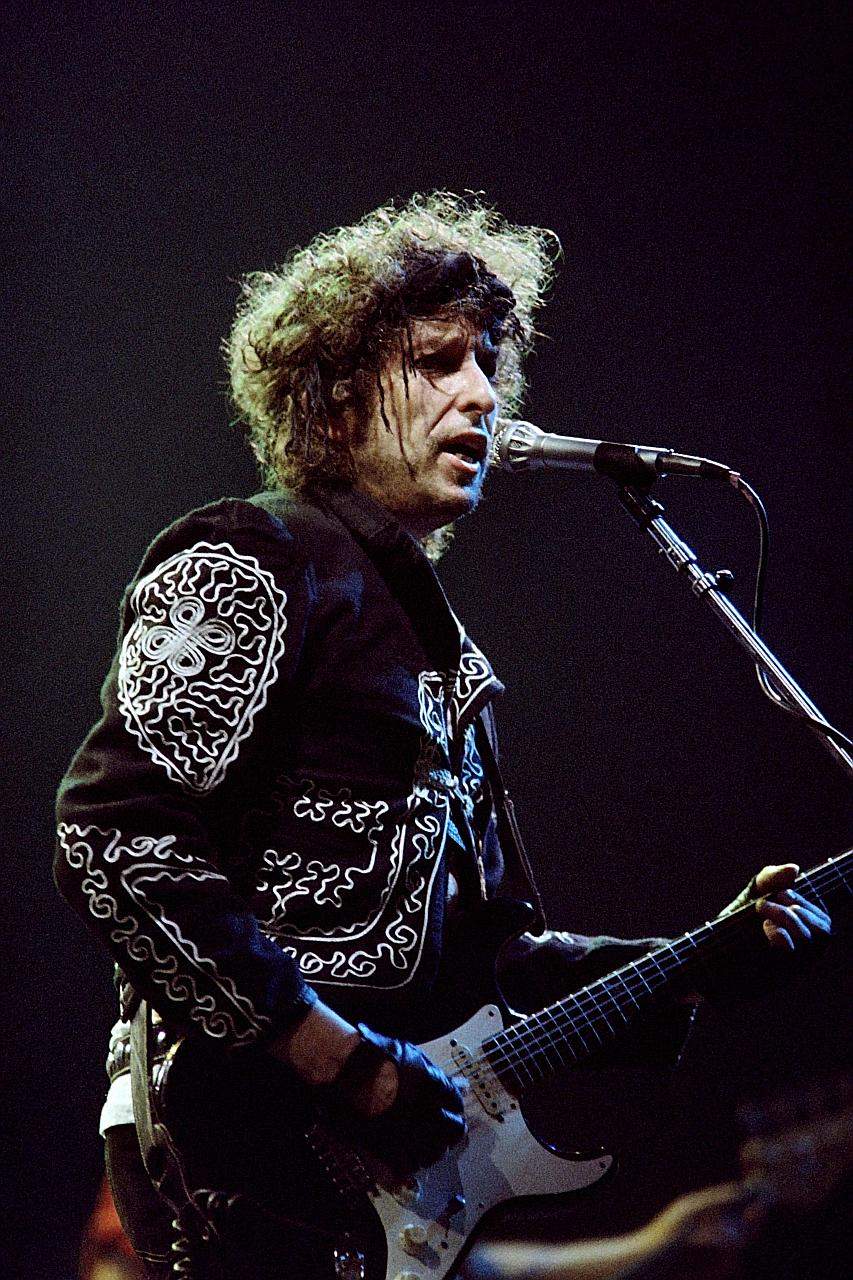Singer-songwriter Bob Dylan, who has for years been seen as a longshot contender for the Nobel Prize in literature, emerged as its surprise winner yesterday.
He is the first songwriter to be awarded the coveted Nobel Prize, putting to rest mounting speculation that Japanese author Haruki Murakami - a perennial favourite - or American author Don Delillo would walk away with it this year.
Dylan, 75, received the prize "for having created new poetic expressions within the great American song tradition", said the Swedish Academy, which is responsible for choosing the Nobel laureates in literature.

She told reporters in Stockholm: "Bob Dylan writes poetry for the ear. But it's perfectly fine to read his works as poetry."
Although Dylan has long been tipped as a potential prize recipient, surfacing regularly in the betting odds, he has often been dismissed as a longshot.
A consistent argument was that his work in music was outside the the traditional realm of poetry, novels and short stories recognised by the Swedish Academy.
While Ms Danius acknowledged that Dylan might be seen as an unconventional choice, "if you look far back, 5,000 years, you discover Homer and Sappho".
"They wrote poetic texts which were meant to be performed, and it's the same way for Bob Dylan. We still read Homer and Sappho, and we enjoy it," she said.
Dylan - the first American winner of the Nobel literature prize since novelist Toni Morrison in 1993 - has sold more than 100 million records and clinched a steady string of awards, including 11 Grammy Awards and a Golden Globe Award.
He has been inducted into the Rock and Roll Hall of Fame, and in 2008 was awarded a special citation by the Pulitzer Prize for "his profound impact on popular music and American culture, marked by lyrical compositions of extraordinary poetic power".
Dylan started off playing in coffee houses in his birth state of Minnesota in 1959.
By his early 20s, he had made a name for himself with his songs. Hits like Blowin' In The Wind and The Times They Are A-Changin' were adopted as protest anthems, giving voice to the civil rights movement or speaking out against war.
In a 2013 essay in The New York Times, former Rolling Stones bassist Bill Wyman argued that Dylan's strong voice made him a serious contender for the prize.
"He was surely the first pop artist to tell his audience things it didn't want to hear... If the academy doesn't recognise Dylan - a bard who embodied the most significant cultural upheaval of the second half of the last century - it will squander its best chance to honour a pop poet."
Reactions to Dylan's win remain mixed. Amid cheers of support, some like Scottish novelist Irvine Welsh have come out strongly against the win.
Welsh, who is best known for his 1993 novel Trainspotting, tweeted: "I'm a Dylan fan, but this is an ill-conceived nostalgia award wrenched from the rancid prostates of senile, gibbering hippies."
The Nobel Prize is one of the world's most prestigious awards, and one of the most generous. Winners receive 8 million Swedish kronor, or more than S$1.26 million.
Singer-songwriter's notable works
Defiant, political and deeply personal, here are three of singer-songwriter Bob Dylan's most celebrated hits:
BLOWIN' IN THE WIND, from the album The Freewheelin' Bob Dylan (1963)
Written when Dylan was just 21, this song deals with war, peace and humanity.
With its charged lyrics taking the form of poignant questions (Yes, how many deaths will it take till he knows/That too many people have died?), this is one of Dylan's most iconic songs - and a reflection of his ability to embrace sobering subjects and imbue them with emotion.
THE TIMES THEY ARE A-CHANGIN', from the 1964 album of the same name
Amid social and political upheaval in the United States - the song was released weeks after president John F. Kennedy's assassination and months before the Civil Rights Act was passed - Dylan gave voice to the frustrations of Americans in what is still seen as one of the greatest protest songs in music history.
In the liner notes for Biograph, a 1985 box set made up of 53 released and unreleased tracks, he wrote: "I wanted to write a big song, some kind of theme song, with short, concise verses that piled up on each other in a hypnotic way. This is definitely a song with a purpose. I knew exactly what I wanted to say and who I wanted to say it to."
KNOCKIN' ON HEAVEN'S DOOR , for the soundtrack of the 1973 film Pat Garrett And Billy The Kid
One of his most popular post- 1960s songs, Knockin' On Heaven's Door is a bittersweet farewell to life. With its simple lyrics and uncomplicated chord progression, it has been covered by music greats like Eric Clapton and Guns N' Roses.Ms Sara Danius, permanent secretary of the Swedish Academy, called him "a great poet in the English-speaking tradition".

